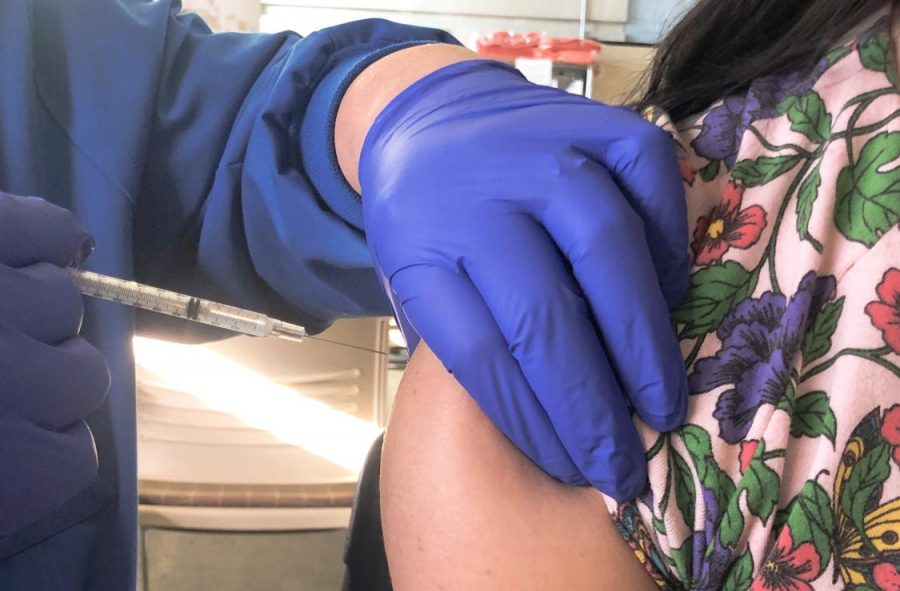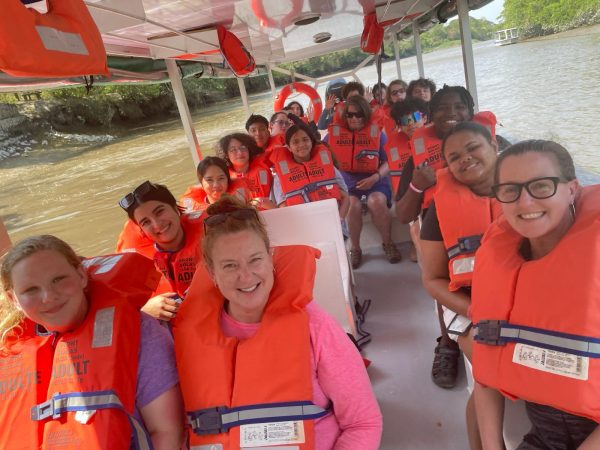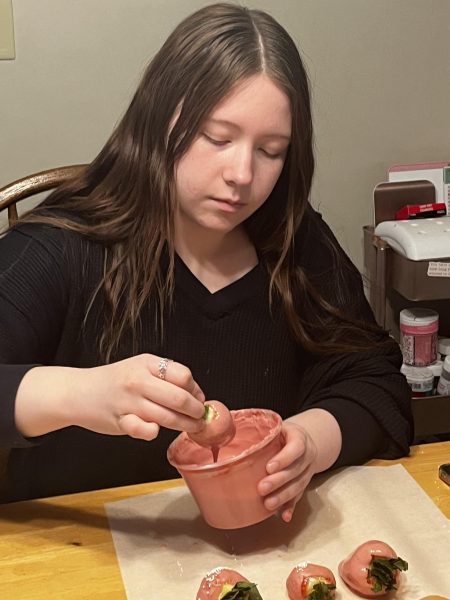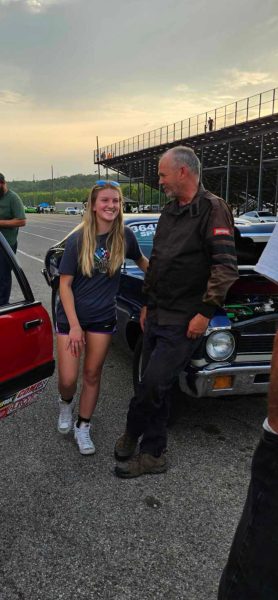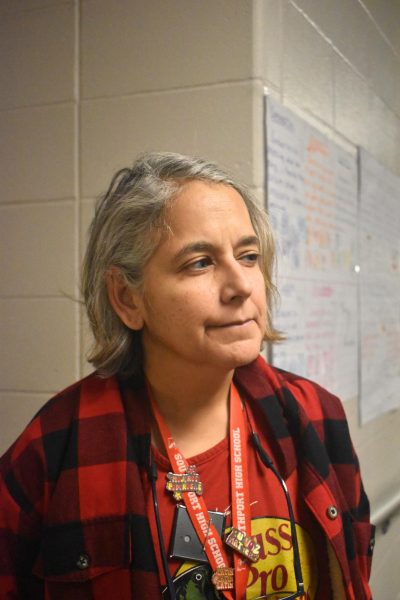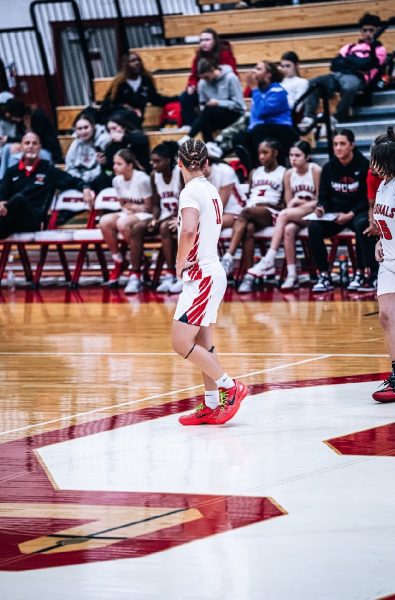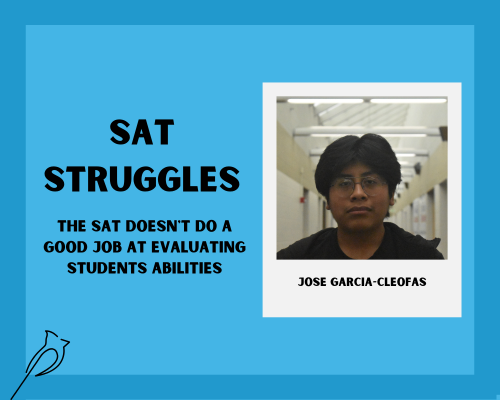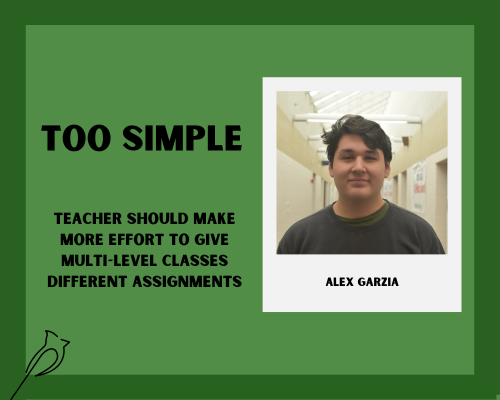Injecting Controversy
SHS students and staff have mixed opinions on the vaccine
Sophomore Kari Mendel is not getting the COVID-19 vaccine, or is she? Back in December, Mendel’s whole family got COVID-19. Her mother had symptoms such as intense body aches while Mendel experienced shortness of breath, headaches, and a loss of taste and smell for three months. Already having the virus, fear had been instilled in Mendel. Therefore, the decision about whether to get the vaccine did not come easy to her. Ultimately, she leans more towards not receiving the vaccine.
Even with these feelings of uncertainty, this decision isn’t set in stone. Mendel wants to see more people that she trusts to receive the vaccine. She wants to have clarity regarding whether this vaccine will be beneficial to her health and safety. Her sister is the only one in the family who aspires to get the vaccine so far, but if other family members give it a thumbs up, she might get the vaccine.
“If more people I knew got it, then maybe I would get it,” Mendel said.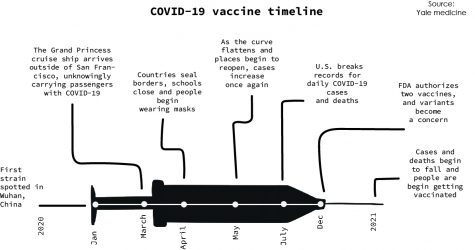
With the vaccine being distributed, SHS staff and students have a big decision to make regarding COVID-19, just like Mendel. However, this decision is filled with mixed feelings and controversy.
Unlike Mendel, sophomore Eli Honey is very certain of his decision. He hasn’t gotten it yet, but he is adamant about scheduling an appointment soon. Honey focuses on the social limitations this pandemic has caused. He figures he might as well get the vaccine now due to the fact he thinks it could eventually be required to do things in the future.
“I just feel like (the pandemic) has had a lot of bad effects on social interaction with people and the economy has gotten worse because of it,” Honey said. “I just feel like getting the vaccine will help people get back to normal as well.”
Junior Bruno De Jesus was quick to schedule an appointment. He received the Pfizer vaccine. Like Mendel, De Jesus has strong trust and attachment to his family. He found out his mother was getting the vaccine, and trusting her decision, he decided to get one too. De Jesus went into the clinic feeling confident before getting the vaccine but afterward started to worry about the side effects such as headache, fatigue and shortness of breath.

“I got it because my mom was getting it, and she wanted me to get it as well,” De Jesus said. “I was just a little nervous because I wasn’t sure how I would react.”
Luckily, he didn’t have any side effects.
With side effects being the main concern for many, John Christenson, Medical Director of Infection Prevention at Riley Hospital, assures people that the vaccine is not harmful and delivers hope to a better future.
“What people have found with these (Pfizer and Moderna) vaccines is that they have been very safe,” Christenson said. “It is keeping people from being hospitalized and keeping people from dying.”

Similar to De Jesus, assistant athletic director Nick Stevens received the Pfizer vaccine. Because he has multiple friends that are healthcare workers, he trusts what they have to say about the vaccine. He says he tries to encourage people to support science and listen to what the safest course of action could possibly be.
“I think it is a positive step to eradicate the virus,” Stevens said. “I know that people have concerns about it, but I personally think it is the safe and responsible thing to do so you do not spread the virus to at-risk people who are more susceptible.”
Turning to health professionals and science, senior Elicia Moreno also thinks that people should be trusting what can be shown and proven true. Unlike De Jesus’s mother, Moreno’s mother encourages her not to get it. Since she is over 18, Moreno is thinking of signing herself up to receive the vaccine instead.
“It is kind of like, do you favor yourself or do you favor the safety of your society?” Moreno said.
Ultimately, Moreno aspires to look at the big picture. She says that the U.S. praises individuality and human rights, but currently she thinks people need to focus on the societal aspect of it and how it affects those who are more at risk.
“I think it is beneficial if we want to continue as a society, and it will help to be better suited for us in the future,” Moreno said.
Social studies teacher Nathan Fishel has also received both doses of the Pfizer vaccine. But this decision did not come easy to him. Fishel was concerned about the short time in which the vaccines had been made, and the lack of evidence and testing. Ultimately, he found that the positives outweigh the negatives. He decided to get it due to coaching, travel and constantly being around people.
“The general criticism of it is that it was generated so quickly, so we don’t know the effects or the long term effects it could potentially have,” Fishel said.
Someone who can understand the skepticism of the vaccine on a personal level is English teacher Heather Todero. She thinks that the vaccine was developed too quickly and that there are still unknown long-term effects the vaccine could hold. Even with her decision not to get vaccinated, she says she still respects the decisions of those who did choose to get it, and hopes she receives the same in return.
“I think with the vaccine it is a person’s choice,” Todero said. “If I am not going to get it, it should be respected that I am not getting it. And if someone is going to get it, they should be respected as well.”
Someone who has influenced her decision is her father. She says that he is very intelligent and wise. He’s always taught her to step into both sides of the situation. Embodying this motto, Todero has talked to her doctor and colleagues about the vaccine, both with very different opinions.
“Take in both sides because the truth always lies in what’s in the middle,” Todero said.
Sophomore Billy Rust also recognizes the positives, but for now, he is choosing not to get vaccinated. He not only thinks it’s too early to trust the vaccine, but he also believes the survival rate of COVID-19 is high enough to not be concerned with the effects it could have.
Rust understands the purpose of the vaccine and the beneficial impact it could potentially have on society. But for him, he has made his decision through his personal political views and perspective on COVID-19.
“There is evidence that it could help and you might not contract the virus, there could potentially be long- term effects, but it is too early to know,” Rust said. “I do think it has a positive effect on the world though.”
Regardless of how SHS staff and students feel, principal Brian Knight says that as of now, the COVID-19 vaccine will not be required at SHS.
“I think from a structural point of view the more people that are vaccinated, like anywhere, the less of a chance we have to spread the virus,” Knight said. “As a district,
I do not think it is something that will be mandated unless it is some universal requirement that is put into place that is kind of beyond us.”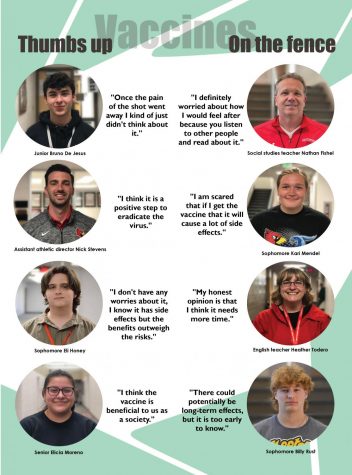
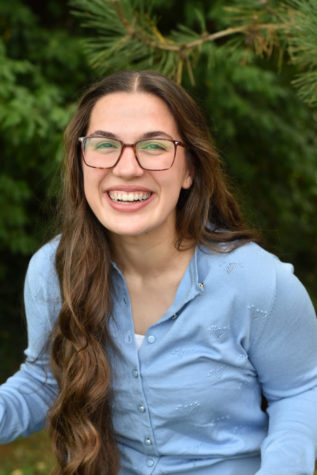
I feel like I’m getting deja vu because this is the third time I have written a staff bio for The Journal. Who would've thought that I could enjoy that...


